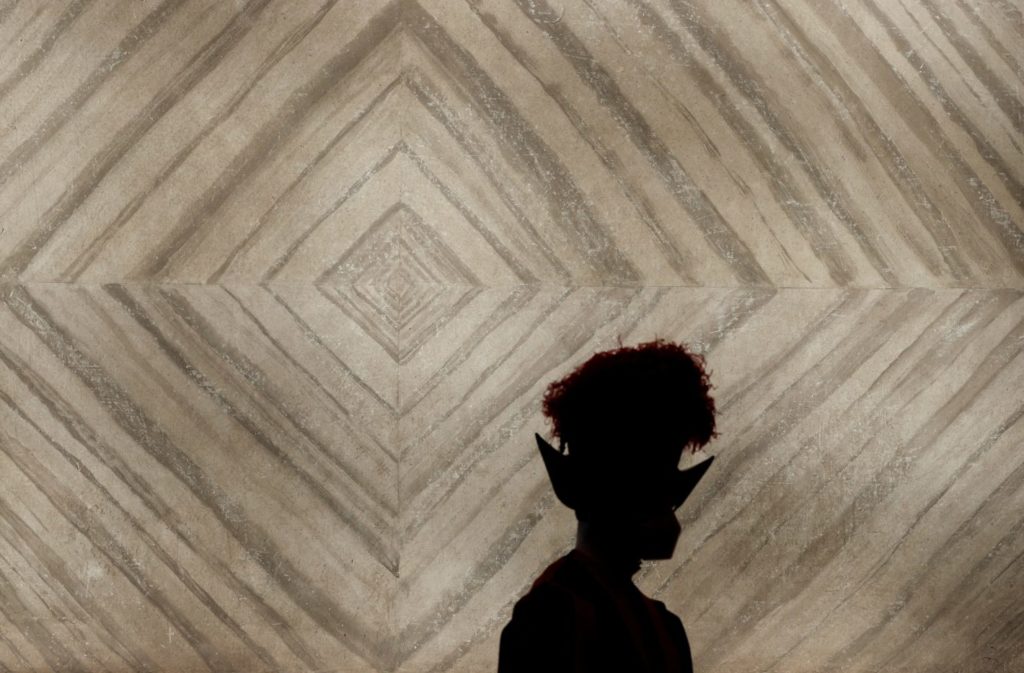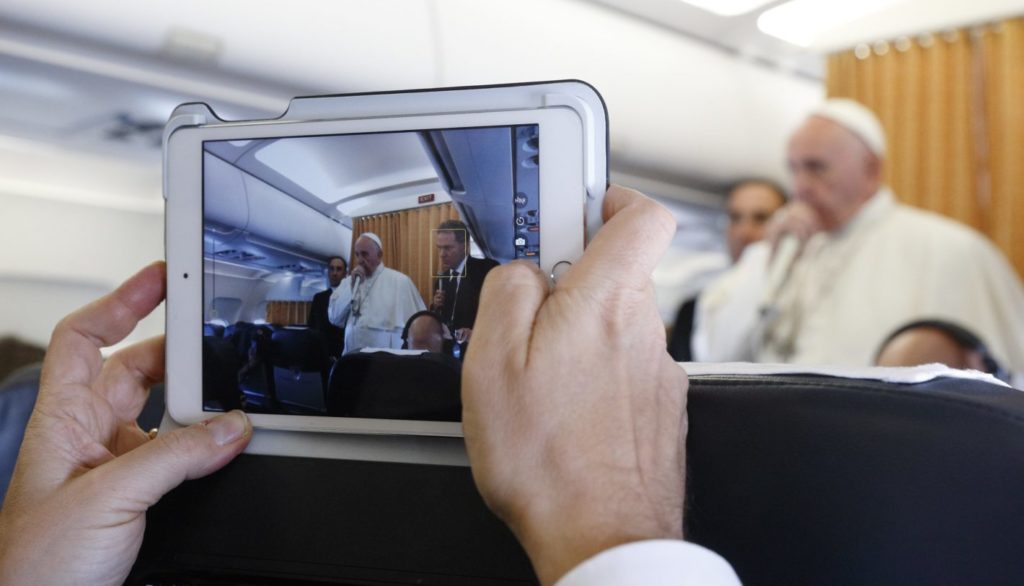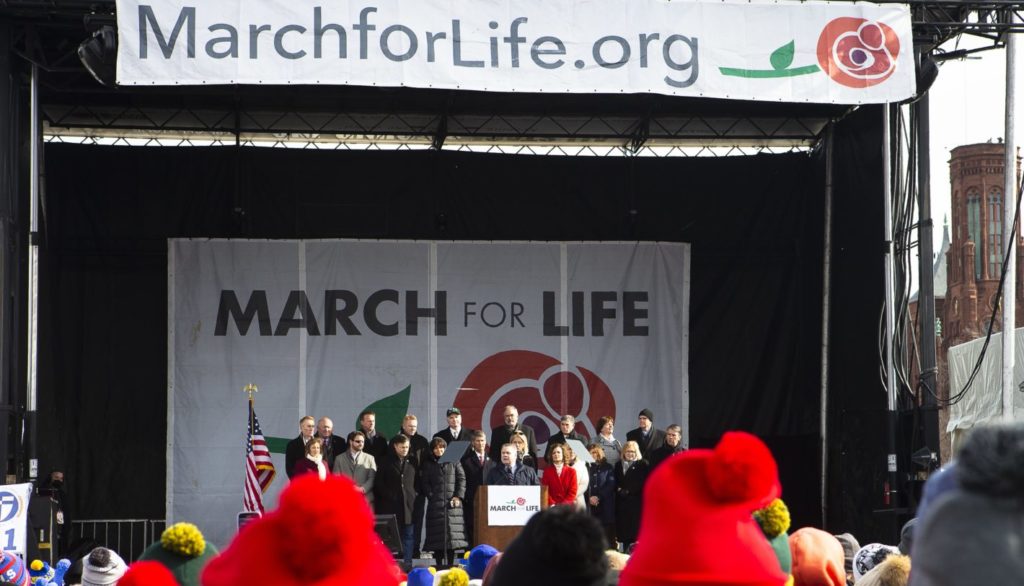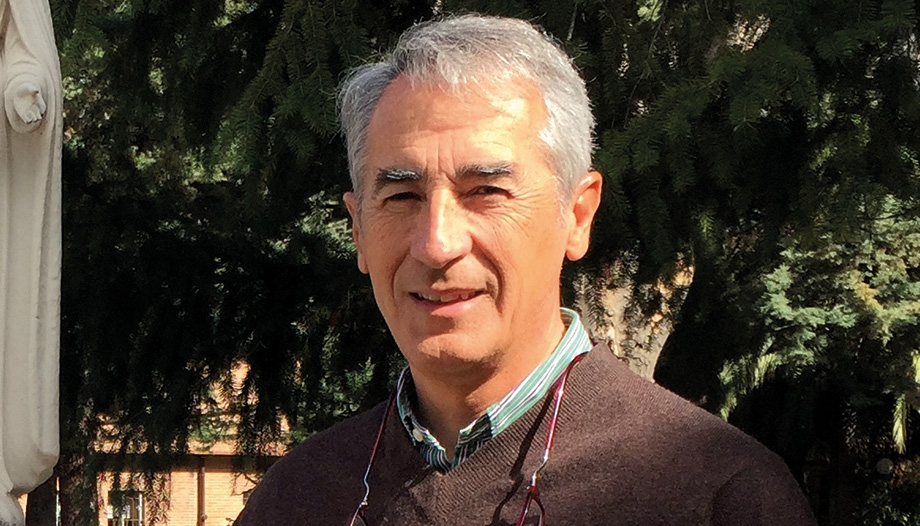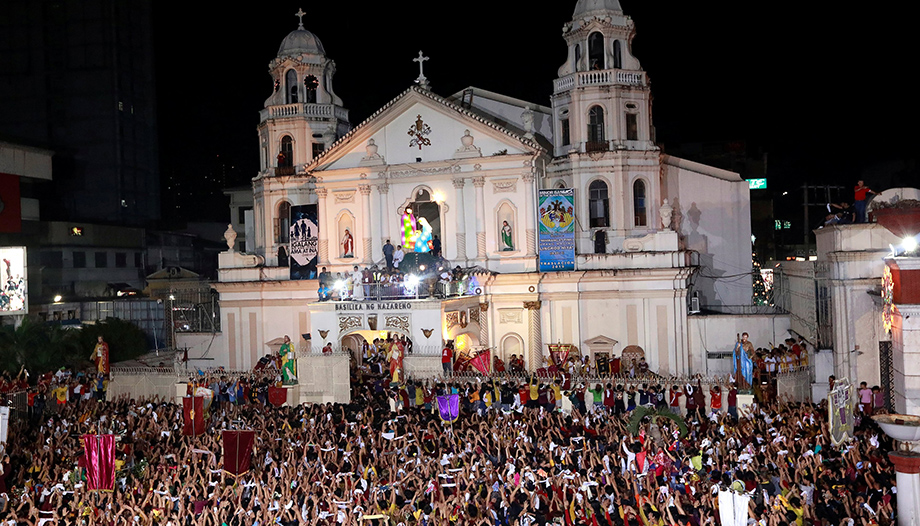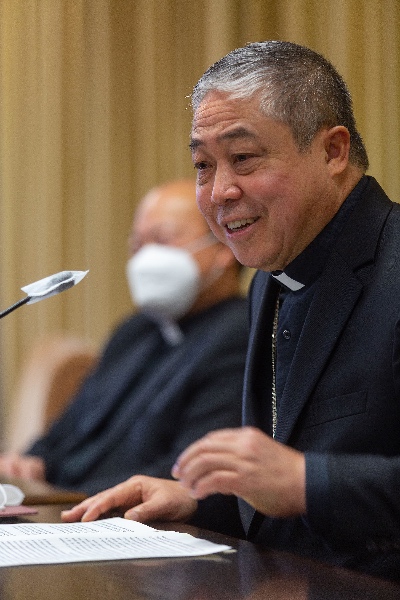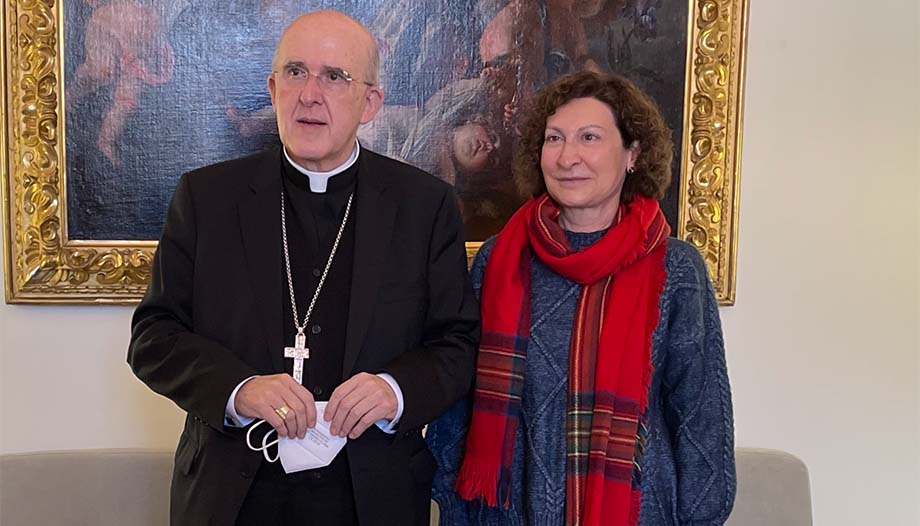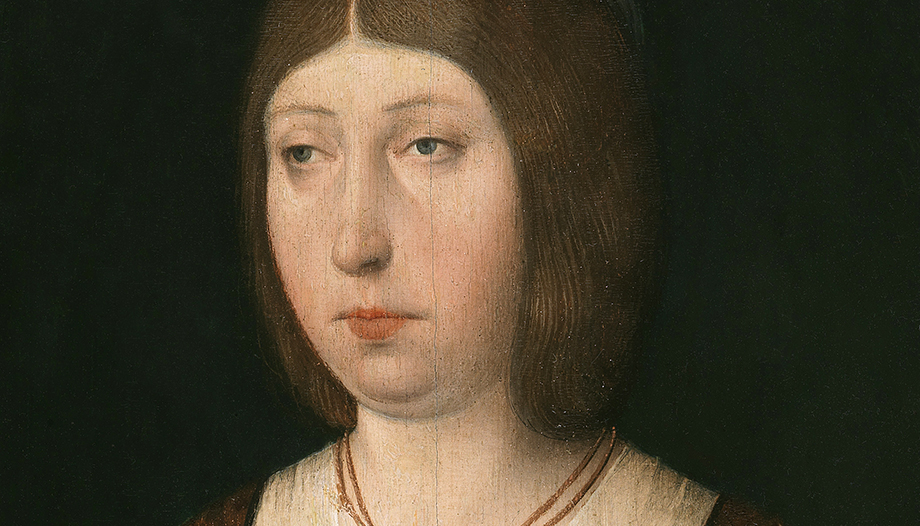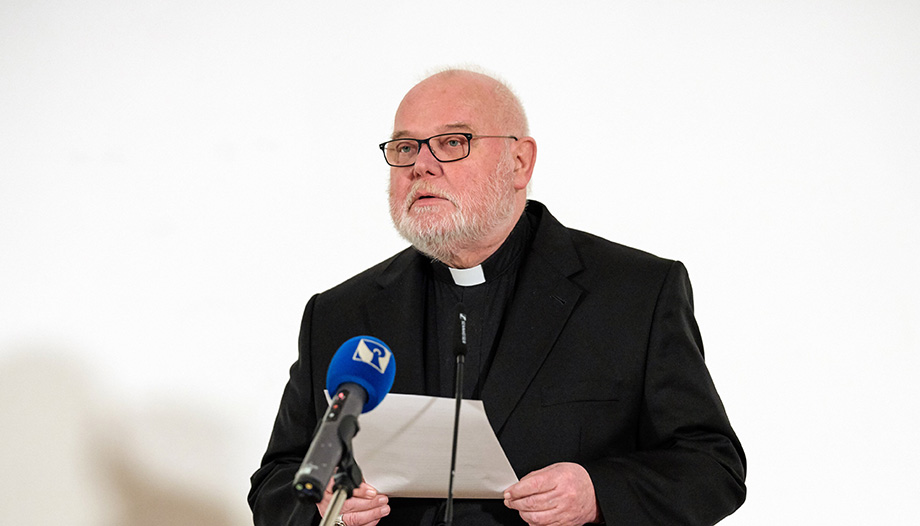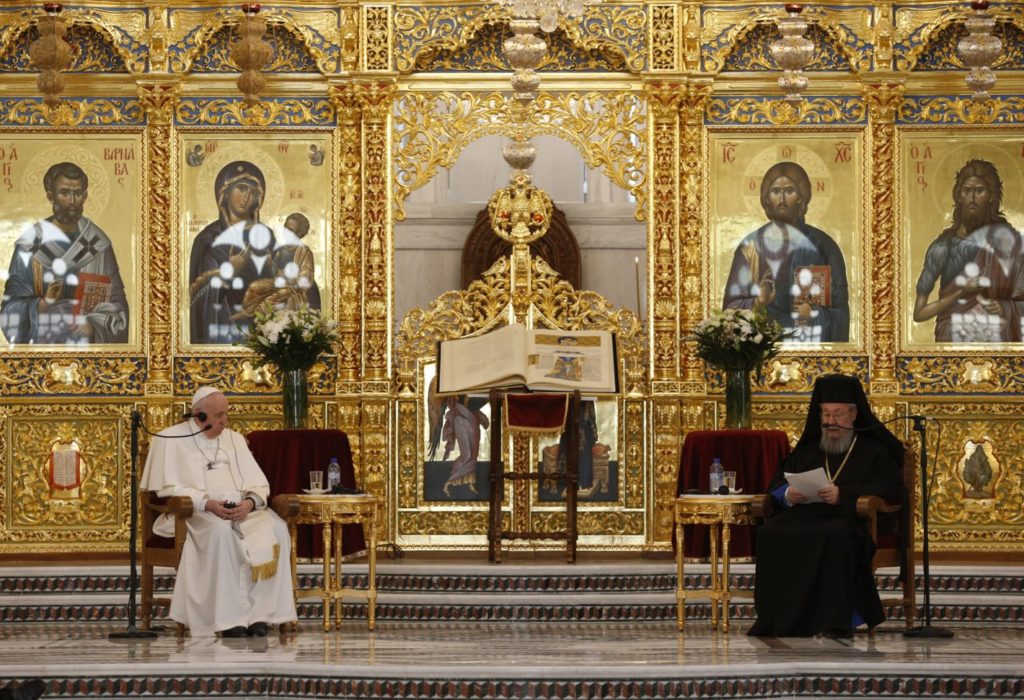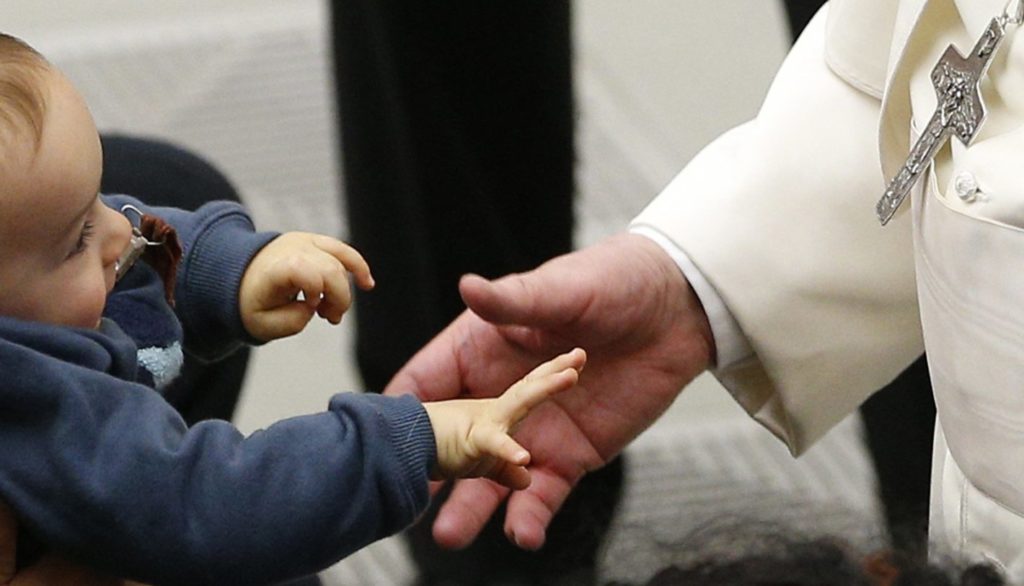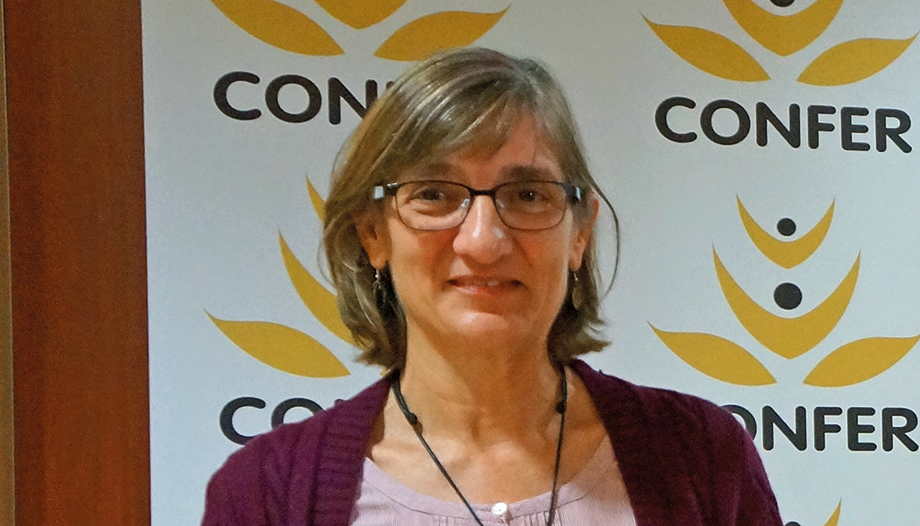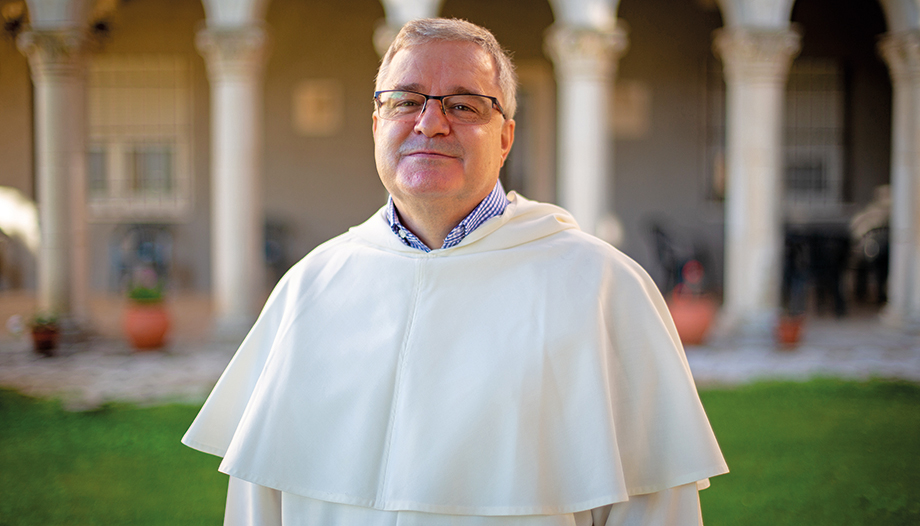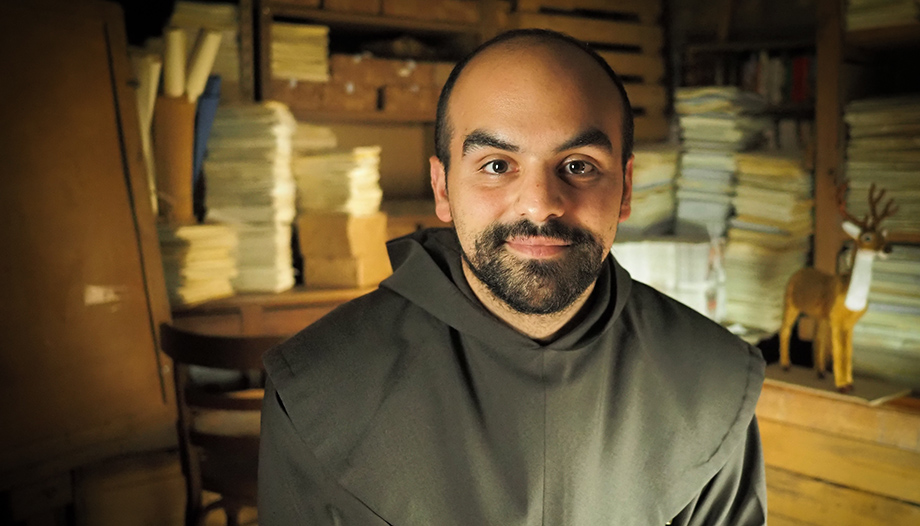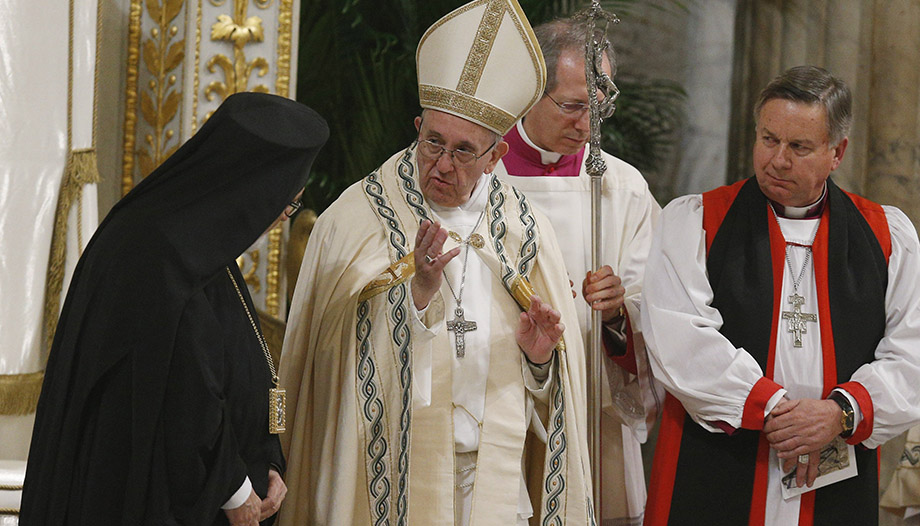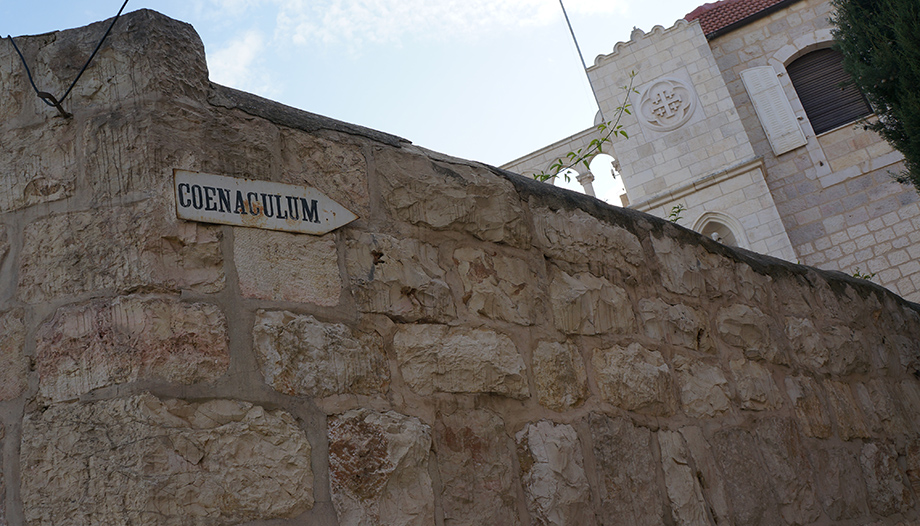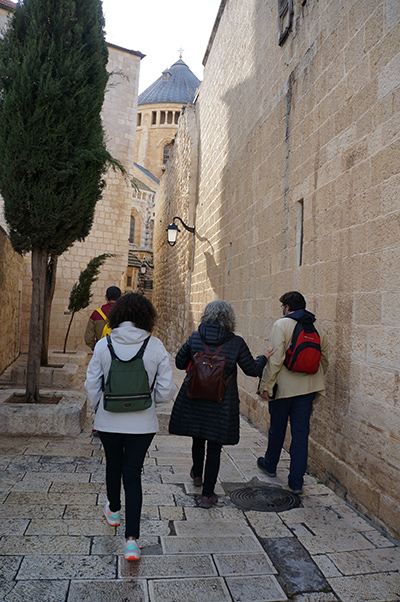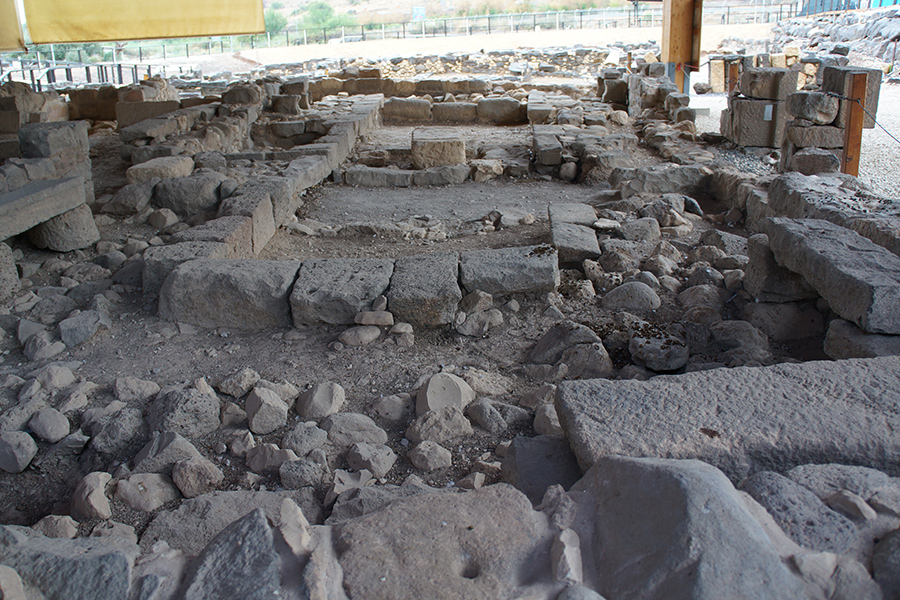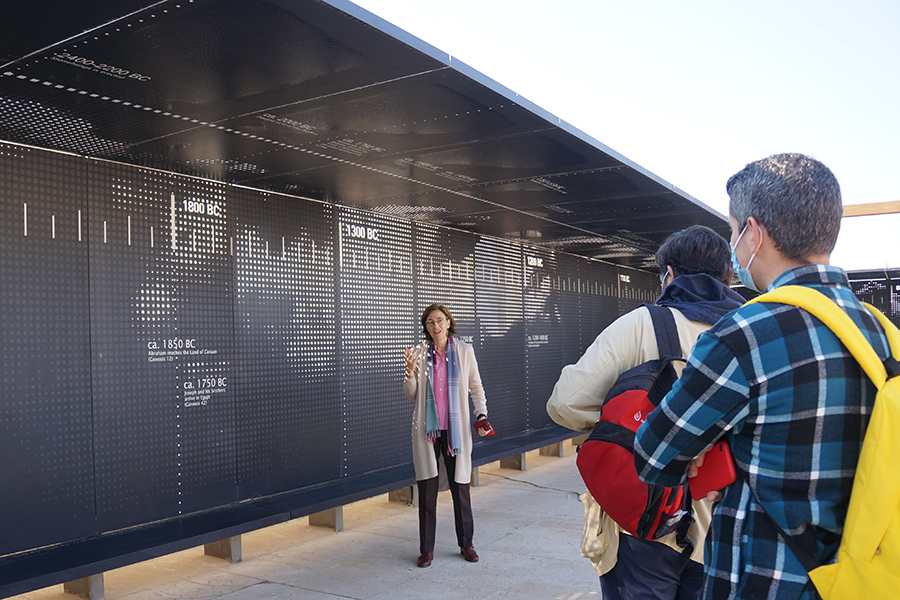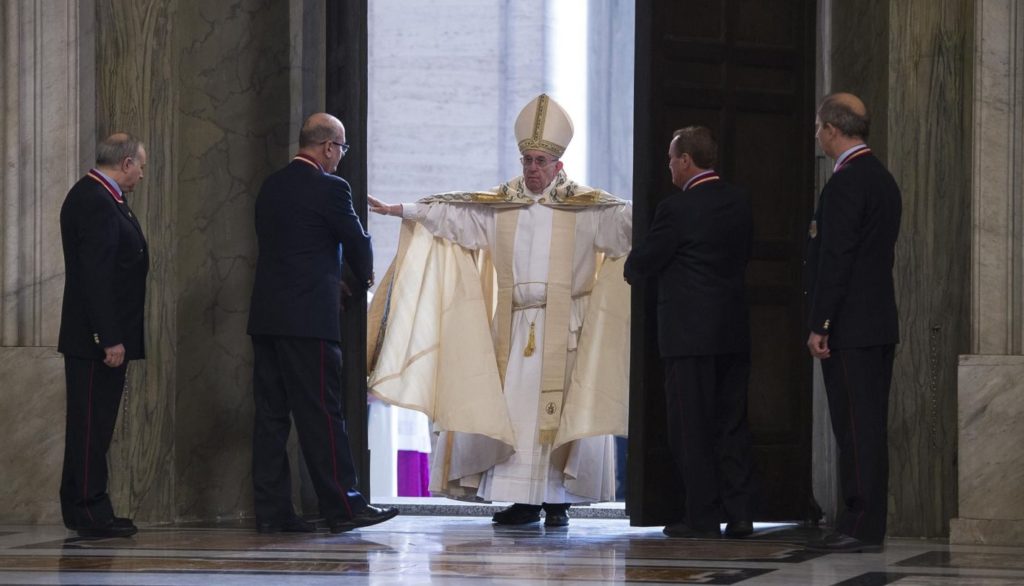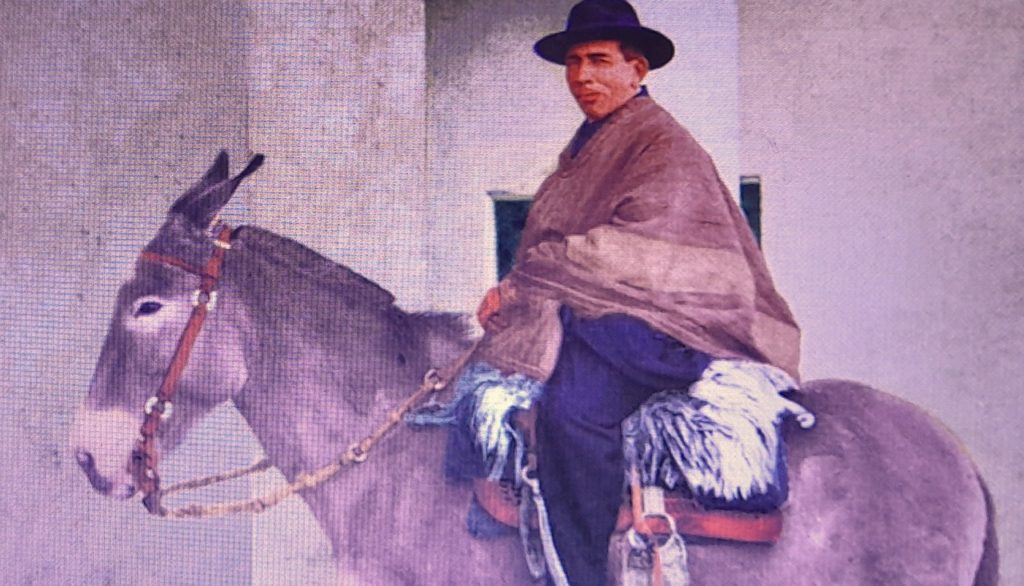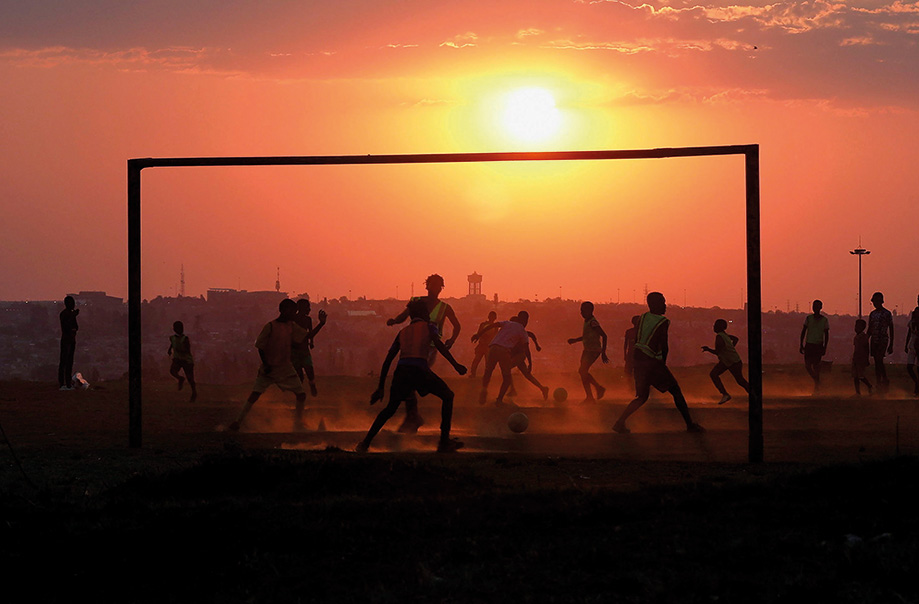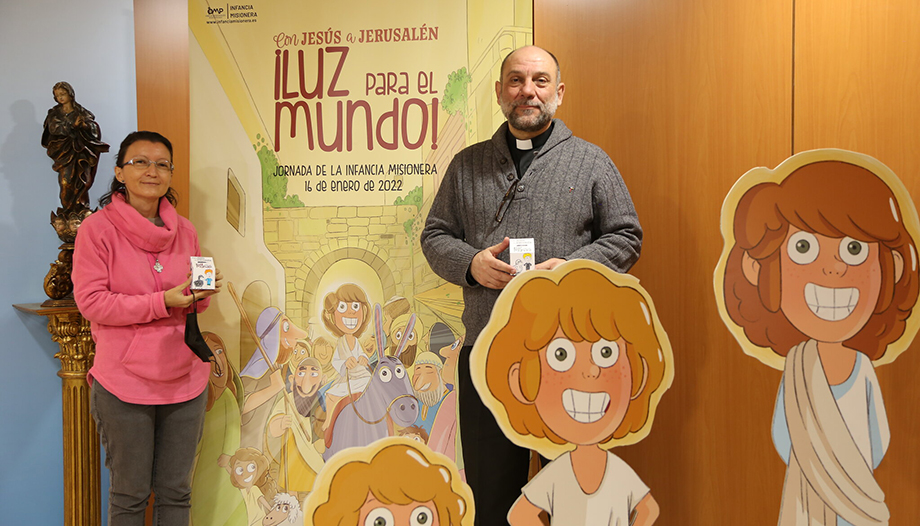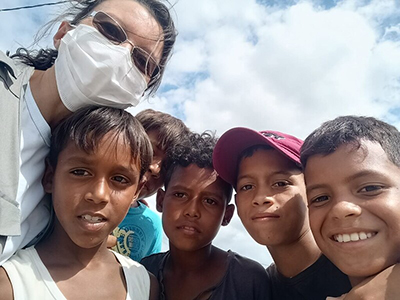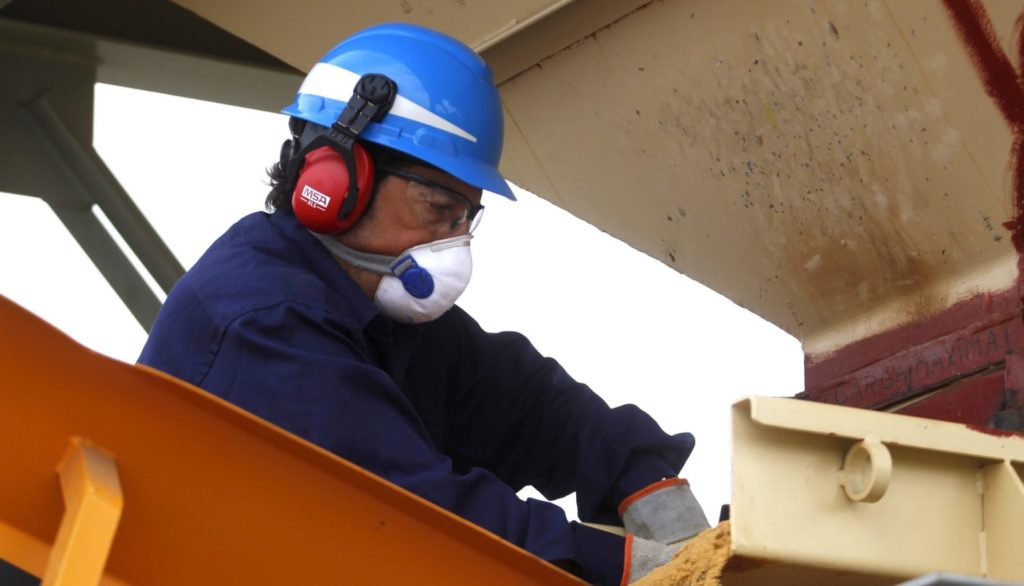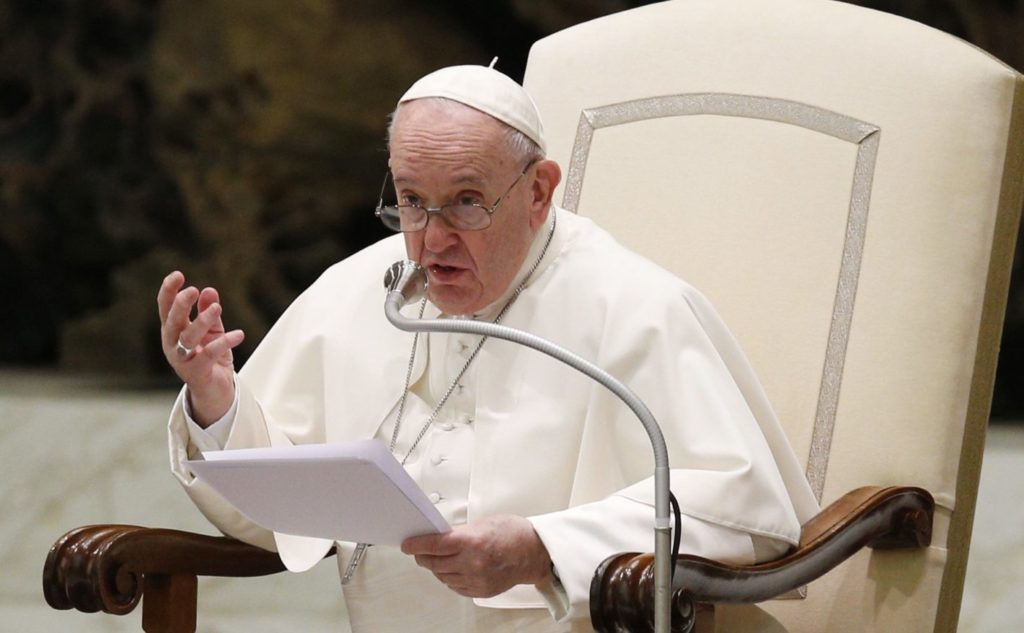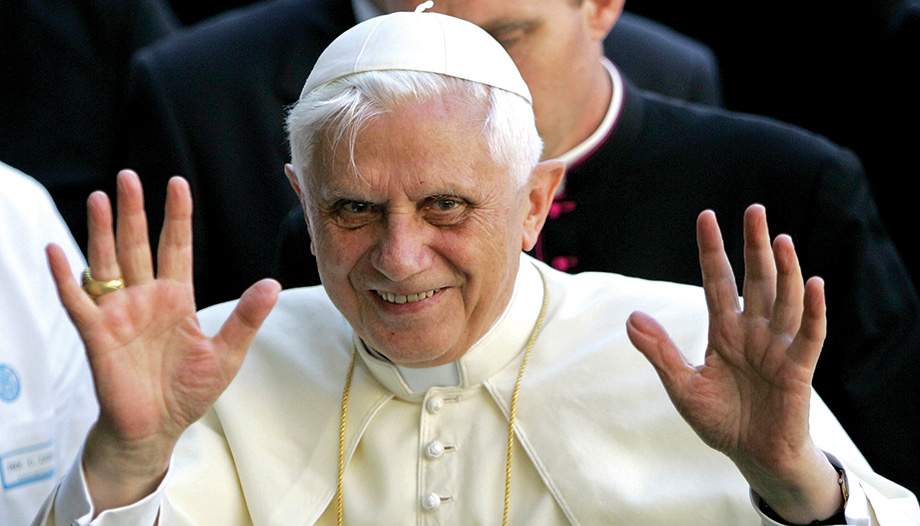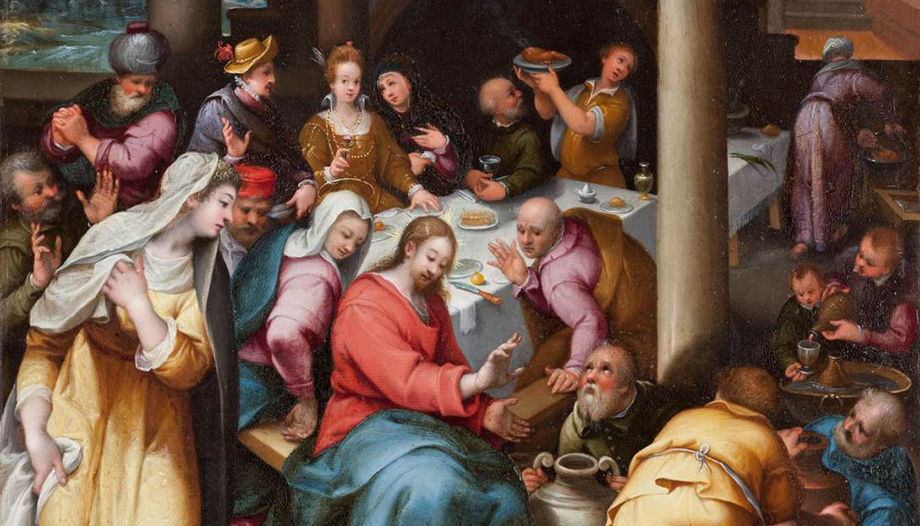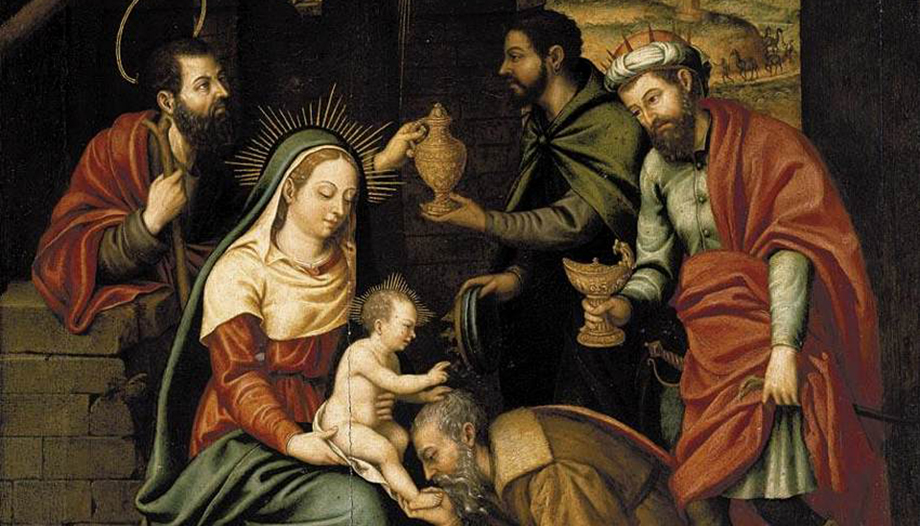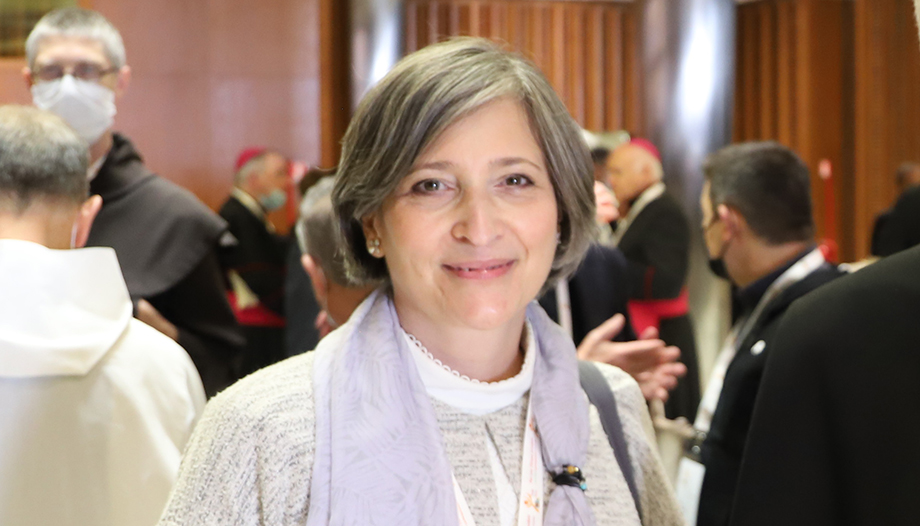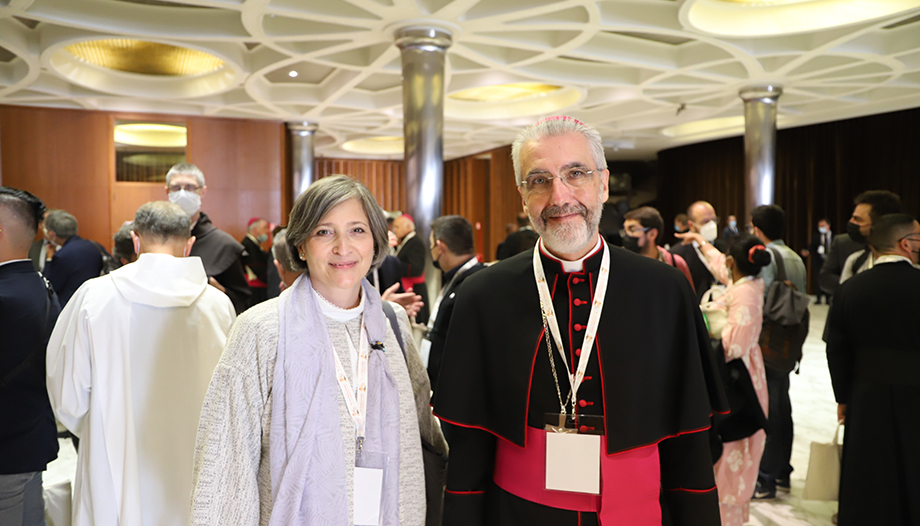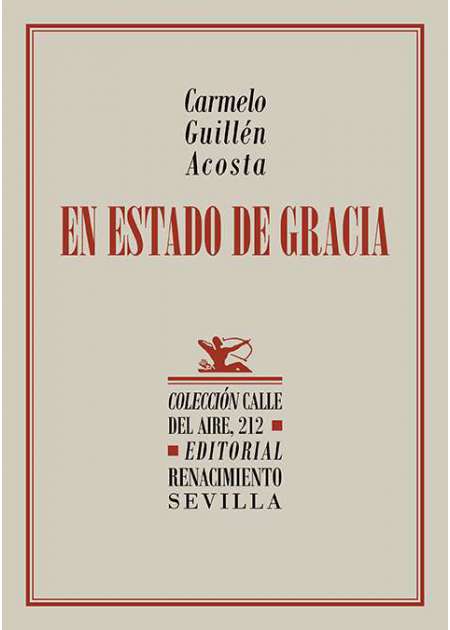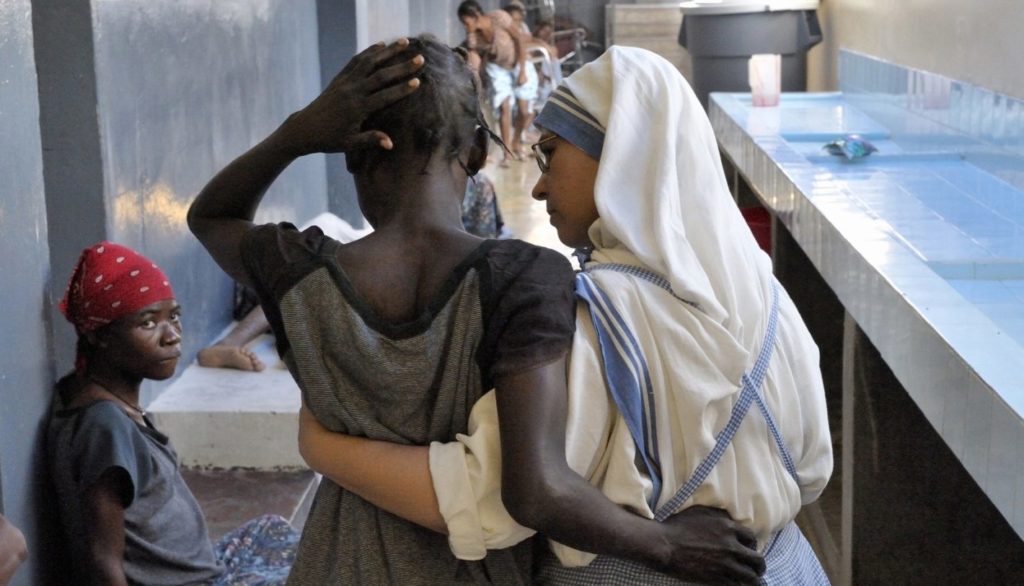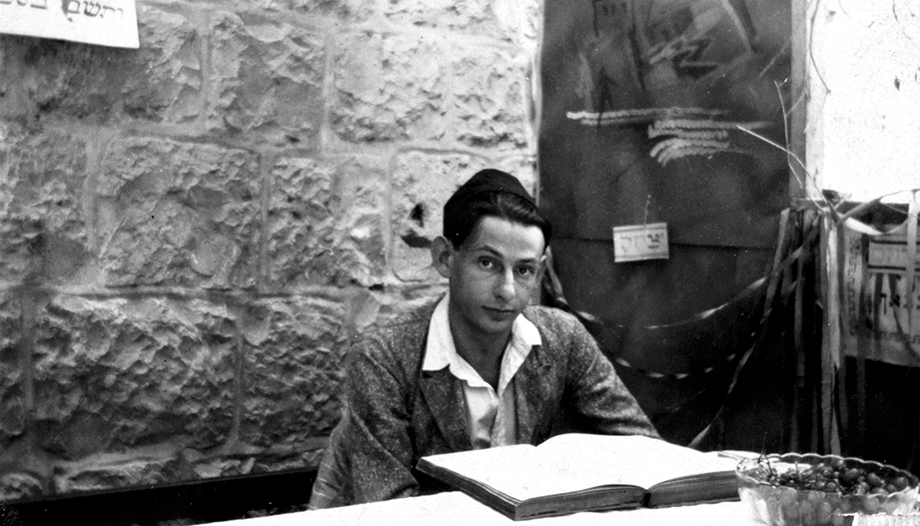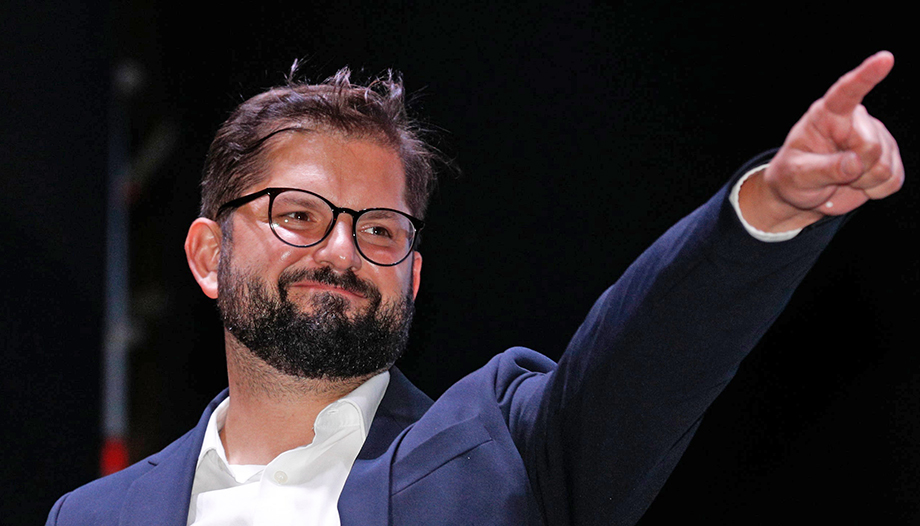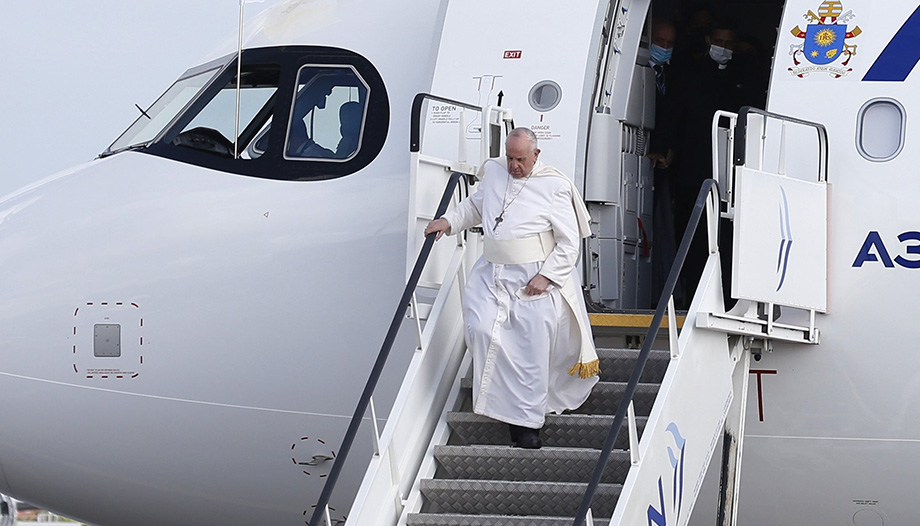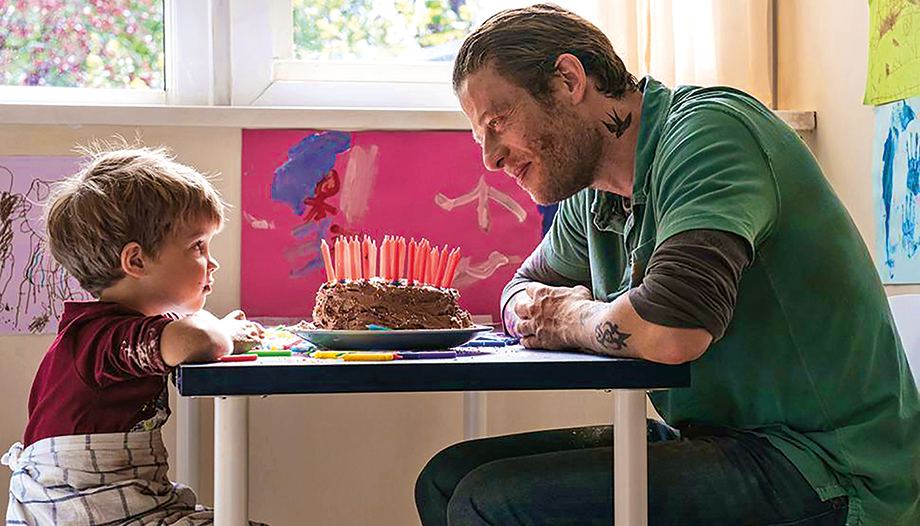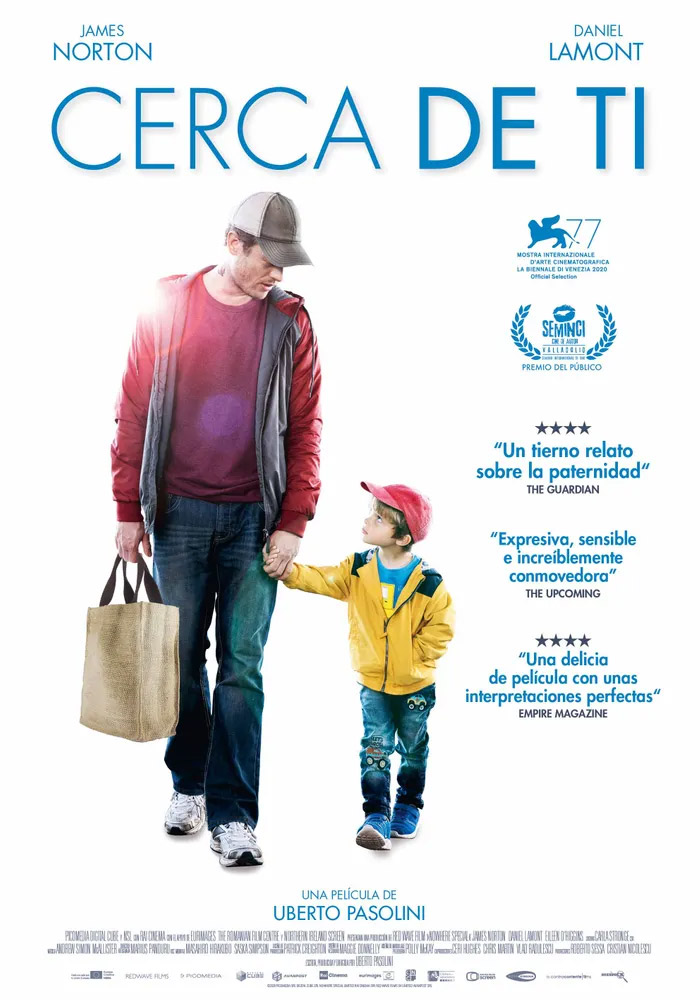Graciano tightened his pace as he fixed his scarf. How cold it was that early morning. He put his hand in his pocket to check if he had taken his house key on his way out. "Everything is forgotten in a hurry," he thought, remembering the time when, also in the middle of the night, he had left his key inside. A night as cold as that one was not to be spent out in the open. He thought of Petra. Perhaps it was her last night. That little old lady full of energy. How many times she had taken his food to the sacristy: "Graciano, if I'm careless, you won't eat for days," she used to tell him.
When she reached the little house with light, she went to the door and knocked. Clara, Petra's youngest daughter, opened the door.
- Thank you, Father. At this hour I didn't know whether to call you, but she insisted so much... She has hardly spoken for days and has been asking me to call you all afternoon.
- You have done well, daughter. I have neither days nor nights of my own. They are all the Lord's.
Clara looked at him gratefully, and after taking the thick coat from him, led him into the room where her mother lay.
Petra was a tiny old woman. She seemed lost among so many blankets and pillows. She clutched a rosary tightly in her hand and stared fixedly at the door. When she heard the footsteps and saw her daughter entering, she was filled with life. As if she concentrated all the life she had left in her eyes.
- Did you bring Graciano?
- Yes, Mother. Here is Father Graciano," a smile of relief lit up his wrinkled face and he seemed to fill with peace. Graciano entered the room and carefully approached the sick woman. Clara left, closing the door.
- Hello, Petra. Good evening, Petra. Your daughter told me that she is worse and I have come here to administer the last rites and give her Communion - Don Graciano piously administered the sacrament and, after giving her Communion, sat down next to her. Petra looked happy and grabbed his hand.
- How many things since you came to town, do you remember? Just ordained and from the city. They said here that you would not adapt to such a hard and retired life," Graciano smiled.
- Here I found the family that God wanted for me. Every one of my parishioners and those who refuse to be parishioners," Petra nodded.
- I have been very happy, Graciano. Now that the end is coming, I understand that God does everything well. I married young and lost four children before I had Manuel and Clara. I thought I would never get over so much pain. Then the hard work, getting my children to study abroad and Antonio's illness.
- I remember him in his wheelchair with his club in his hand. When someone blocked his way or bothered him, he would hit him with it," Petra laughed softly.
- Yes, how many problems the blissful garrotte gave us. I even slept with it.
- Are you in a lot of pain, Petra?
- Many, but I don't care. I have many years and a great faith. God has taught me what is not in the books: to live and, therefore, to die when He wants me to - Graciano looked at her with affection and without hiding the tears that were beginning to wet his face. That woman, like all her generation, was a strong woman. How many lessons they continued to teach her. It was a wise generation, born to sustain.
- It is possible to be happy in suffering, Graciano. My children do not understand it and it is possible that it is because they have had everything easy. And life also teaches through pain. Perhaps they lack the experience of knowing nothing. They think they can do anything. They believe that science and their intelligence can fix everything.
- And, isn't it," Graciano smiled. He liked her to talk. He learned from her. He never got tired of listening.
- No, of course not. In this life only giving meaning and value to things is what brings happiness.
- What's the point of pain, Petra?
- Ah... Graciano, you know it well but you make me talk. No, don't smile. We've known each other for many years. You have eaten at my house more times than I can remember. You accompanied me to the funeral of several of my children and my husband. I never forgot one thing you said at the little boy's funeral: "In life and in death we belong to God".
- That is from Scripture.
- Yeah? I don't know, I didn't learn to read. But how much truth is there. There is no fear for the one who knows he is the son of the One who loves him most.
- Do you feel loved by God, Petra?
- Yes. In every pain I yelled at him and got angry. But I always knew he was by my side. Suffering with me. He gives meaning to meaninglessness. He shapes us in a certain way. Like my husband did with sculptures. With blows, with hardness. To set us free.
- Free?
- Yes, free. We hold on to so many things that happen. We set our hearts on so many things that are not worthwhile. And yet, in misfortune, we realize that the only thing that counts is love of God and love of others. That is to be free. To be tied to nothing in our hearts. I will go in peace today. With my faults, I know that my life has been what He has wanted. I only worry about my children and my grandchild. My children are so busy with things that are worthless. My oldest, with the virus thing, has gone crazy. "Mom, the only thing that matters is health," he was telling me the other day.
- And what did you tell him?
- I told him he was a beggar. Imagine, putting your happiness and trust in something you know you're going to lose. And the other one, Clara, is a good girl but she wants to run everything herself. She doesn't understand that the way to happiness is to obey God and do His will. She only cares about money and comfort. She should have taught them better when they were children.
- Learning the meaning of life is an apprenticeship of some years, Petra.
- Do you think they'll ever understand," she sighed, "I was wrong as a mother in that. I never taught them to suffer. Whenever they had any setback, I did everything I could to take it away from them. And when the pain came, I let them look the other way. I never taught them how to deal with it. I should have taught them. Because then they hit potholes and didn't know what to hold on to. For them, prayer is just reciting little words at full speed. They don't know Who Jesus is. They don't know what the Cross means. I did not teach them to offer, as my mother taught me. I thought it was too hard a teaching. I thought they would not understand until they had a stronger faith. And yet, how far they have gone.
- They still have time to know God, Petra. Let's pray for them and their grandson. When you are absent, I will continue to accompany them. But you can help from heaven, for the task is a big one," Petra smiled.
- Thank you, Graciano. Graciano began to pray and Petra accompanied him. First softly and then from heaven.
After comforting his daughter and promising to return first thing in the morning, Graciano went out into the cold again. But now he forgot to fix his scarf and even to button his coat.
Educate in suffering... educate and give reasons, I thought. But how can we explain the great mystery of God's love and suffering? Society does not understand pain and death because it does not understand life. Gratian thought about abortion. He thought of euthanasia. He thought of the materialism he saw so often and of the coldness towards all that is transcendent. He thought of so many people for whom a life like Petra's, without quality, was meaningless. He thought of those who think that God is like a genie of the lamp who must grant everything we desire and if not, out. Instead of understanding that He is God and we are weak creatures. How can we show all this to others when they neither ask nor are interested in it? Graciano felt very small and then the church bell rang. He smiled as lovers do and changed his way. He would no longer return home that night. He would go to his father's house. To the church where, in a small tabernacle, the Lord of all things dwells. She would ask Him for the grace, the help and the consolation to face the next day, with joy, the immense task that God had entrusted to her.
Society without suffering?
In a society in which no value is given to human life that does not enjoy "quality" according to modern standards, it is increasingly necessary to have spotlights, beacons that illuminate and fill meaninglessness with meaning. Finding meaning in suffering helps us to live it in the most humane way possible. That is why it is important to go deeper into this reality. How many times have we heard from our elders, that of "offer it" when we had some setback. Do we understand well what it means?
In our society it is becoming more and more necessary to educate in suffering. To teach children, according to their capacity, that suffering is part of life. It would be naive to think that we can deprive our children of the experience of pain and it is important to show them how to behave in those moments, what to hold on to and how to move forward. It is very frustrating not to know how to deal with one's own pain or the pain of those around us. Talking to children, according to the circumstances and their capacity to understand, without hiding from them what they are going to encounter sooner or later, means giving them the skills to face these moments. It is also surprising how children understand the mystery of pain and how they become strong and empathetic when we help them to face it, and not to deny it as if it did not exist. It is very positive to educate in this area. On the other hand, it is sad to see how many believers do not want to teach their young children about the cross, for fear of damaging their sensitivity. It is even hypocritical in a society where video games and movies are overrun with senseless violence. To teach how to offer up our pain, to support ourselves in prayer, in the recitation of the rosary and the sacraments, in love and in the support of our loved ones. All these tools God has left us so that we can find him in pain.
Christian suffering
It is possible to find joy in pain. It is possible to find hope where there seems to be nothing left to do. And it is possible because Christ exists. Because Christ rose and freed us from death and suffering, assuming them in his plan of redemption. And he did it through obedience. For he was obedient unto death, even death on the Cross. Indeed, there is a relationship between obedience and suffering. And not obedience as mere compliance or passive acceptance. But obedience as affirmation. As a positive action that affirms something greater, even if it is not clear at times: the Love of God in all circumstances and his loving care for each one. Christ was obedient unto death because he loved his own to the extreme. His obedience was perfect, born of Love. He did not limit himself to accepting "what came his way" but went further, seeing in suffering the occasion to affirm something greater: love for his Father in love for mankind.
Christ learned obedience by suffering. This statement is very revealing. Obedience that is born of love, that affirms, demands suffering from us. It demands of us a death to ourselves. It implies to stop looking at ourselves and to look at Him. Paradoxically, this is "easier" in pain. It is easier for us when we have nothing left. When it is only us and Him. We need to be "destroyed" to let Him rebuild us.
We only become like Christ when we allow Him to act in us. And we only let Him act through the experience of dying to ourselves. If we have had this experience, we will understand. For those who have never experienced their own collapse, it is incomprehensible. It is when we lack everything that seemed important to us that we can truly see our heart. What, or rather, Who we need above all.
Suffering, in itself, is an evil and evil is the absence of good. Suffering is the absence of physical and/or spiritual good. The true and greatest suffering is the absence of God, since without Him no good can exist. That is why Jesus Christ conquered suffering on the Cross. Because He assumed it in such a way that in every pain we can identify with Him. In every pain we are with Him. There is no longer complete absence. Nonsense can have meaning, value.
Christ did not eliminate the suffering of man because he respects human freedom and also the nature damaged by sin. Until the hour of Justice and the end of time arrives, we will live with pain and death. Jesus Christ did not eliminate suffering, but he did transform it at its deepest root. He participated in suffering to the extreme, to the point of invading it with his Presence.
Whoever has never asked himself about the value of his own life, it is very difficult to understand the meaning of suffering and death. One dies as one has lived. The problem of today's society is not that it does not value the sick or that it does not respect death because it is "the end", the problem of today's society is above all that it does not value its own existence. We find hardened people who live as if they were mere matter and thus it is very difficult to open a horizon of hope for them. For them everything is over. To these people we should first ask them what is the meaning of their existence in order to open them to find the meaning of their end.
Sometimes we think that God is a genie of the lamp who has to grant us what we desire if we ask hard enough. Hardly anything is preached today about doing God's will, whatever it may be. The whole Bible is permeated with passages inviting the People of God to fulfill God's will. Our life is for God, to fulfill his will. It is true that we can pray to ask for the removal of this or that suffering or for a solution to our problems. But prayer and trust in God must always be oriented to accept his Will. The anger with God, when suffering arrives, is in not wanting to let go of the reins of our life because we want it our way, or in understanding erroneously that suffering is God's command.
As a society we can help a lot. First of all, as we have pointed out, by educating our children from an early age about the meaning of suffering. But also by promoting solidarity, caring for the sick, investing in the training of health personnel, in palliative care... We must change the image that is often shown of the elderly, giving them their space and the importance and value they have in the face of a culture of youth and materialism. We must change the value we give to life, to learn the value of suffering and death.






 "Even in the most painful of our sufferings, we are never alone."
"Even in the most painful of our sufferings, we are never alone."





